With travel and a writing residency, it was a busy month, so I finished just six books, but that brought me to 80 for the year, which feels like a respectable number. Here are the books I read in December.

Fascism: A Warning by Madeline Albright is a smart book that does raise an alarm about the current state of the world and the rise of authoritarian regimes, including the Trump mess here in the United States. But it begins earlier in the 20th Century with Mussolini and Hitler, taking the reader on a world tour of other fascist regimes. It’s interesting that she includes some dictators who are communists, whom we don’t generally think of as fascists, but people like the Kims of North Korea aren’t just Marxists—they’re personality cultists. The book is well written and engaging, as well as being a concise history of fascism. And a warning.
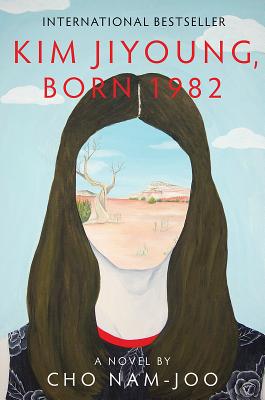
Kim Jiyoung, Born 1982 by Cho Nam-Joo is not a book that I can recommend. Its sole purpose seems to be to establish that Korea is a sexist society, which can’t be news to anyone who is at all familiar with that country. Kim Jiyoung is a woman born in 1982 who learns her place in the family—the younger brother is favored, as in most Korean families of the time—and in school and in the workplace. Everything is stacked against women in Korea and ultimately it drives her insane. In fact, the novel can be read as the file of Kim’s psychiatrist who is treating her for her mental illness, a kind of schizophrenia in which she has begun to speak as if she were other people. I wish, though, that we’d see even more of that illness, as that’s way more interesting than the bulk of the book. To make matters worse, the writing is dull and lifeless, although it’s hard to know how fair an assessment that is given that the book is translated from Korean.
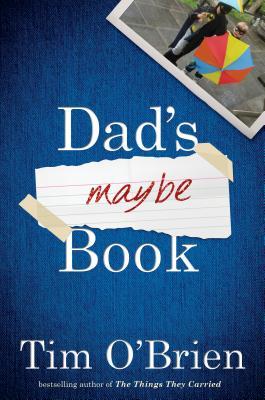
Dad’s Maybe Book by Tim O’Brien is a wonderful book with an odd name, explained in the introduction. It helps, probably, to be a fan of O’Brien’s work, but if approached with an open mind, there’s a lot to be gained from reading it. Ostensibly, the book is a love letter to Timmy and Tad, O’Brien’s sons. O’Brien married late in life, so the kids came when he was in his fifties, and the book provides messages to them he might not be around to give them as they grow into adulthood. But the book is also a collection of observations about writing, some of which I remember from my time with O’Brien at the Sewanee Writers’ Conference, where I also met Timmy and Tad and Tim’s wife Meredith. Read this way, the book will be valuable for any writer. And it is also a collection of Tim’s general philosophy of life, especially his anti-war beliefs. These will be useful for anyone, particularly the warmongers among us, who probably won’t pay attention.
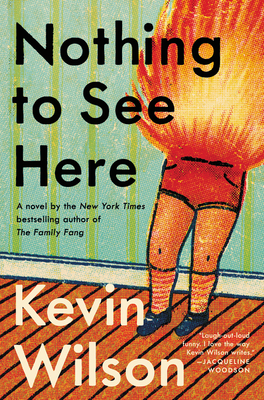
Nothing to See Here by Kevin Wilson came out earlier this year and received a lot of attention. It’s not my favorite of Wilson’s books (he’s a friend from the Sewanee Writers’ Conference and, like O’Brien, blurbed one of my books) but I did enjoy it. The novel is about a Tennessee woman who is asked to look after the step-children of an ambitious friend (anticipating that her Senator husband is destined for bigger things) because the kids are rather unusual: they spontaneously combust. (This quirk is the mark of a Wilson story.) But Lillian loves her friend, realizes that her life pretty much sucks (for which the friend is partly to blame), and she doesn’t have anything to lose. So she accepts the challenge and moves into her friend’s fancy guesthouse to take care of twins Bessie and Randall. The combustion thing is a problem, of course, but there are other complications as well that I won’t reveal here. It’s something of romp, and, most importantly for me, beautifully written. (I didn’t even notice the flaming child on the cover until I posted the image here.)
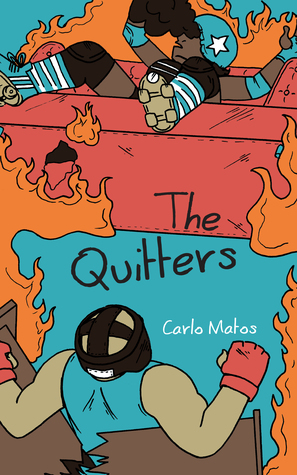
The Quitters by Carlo Matos is a book I acquired almost 2 years ago when I visited the publisher’s table at the annual AWP Conference. (They were at the time considering a manuscript of mine that they ultimately passed on, but no worries, it found another home.) The author of this book was at the table during my visit and he was engaging, the book had an attractive cover (call me shallow), and it never hurts to buy a book from a publisher you might work with later, so I bought it. I buy more books than I can read, so it went into a pile in my study until last week, when I moved some stacks of books around and revealed this one. I decided to finally read it. It’s terrific. It is described as creative essays, but I gather they are more or less true. They deal with the author’s time as an MMA fighter, move into attempts to learn archery, watching roller derby, and finally being an adjunct composition teacher. The language throughout is fresh, which is what makes the book a winner for me, but also most of the situations (adjuncting aside) are fresh as well.
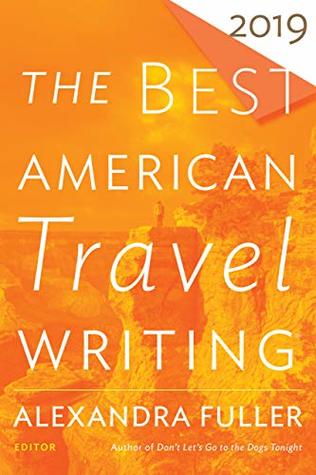
The Best American Travel Writing 2019 edited by Alexandra Fuller has altered my understanding of what travel writing is. It’s not enough, apparently, to visit Sagrada Familia in Barcelona and write about the beauty of the place, or even the warnings about pick-pockets in the crowded tourist spots in that city. The essay, like other essays, must have a broader point than just the personal experience being described. And while travel must be involved, it’s not tourism we’re talking about, exactly, but travel for the purpose of writing the essay: returning to your home on St. John to view the damage caused by Hurricane Irma; visiting the Russian tundra to talk to the native herders about the reindeer anthrax breakout; visiting various countries around the world to investigate their relationship to and use of hot peppers. Then there are the political essays that aren’t really about travel but do address circumstances in far-flung places, such as China and Egypt. My favorite pieces here, though, are the ones that do seem to be really about travel: going back to Cuba to visit the ancestral village, trying to find the same in China, and even the piece about bachelorette parties in Nashville.
